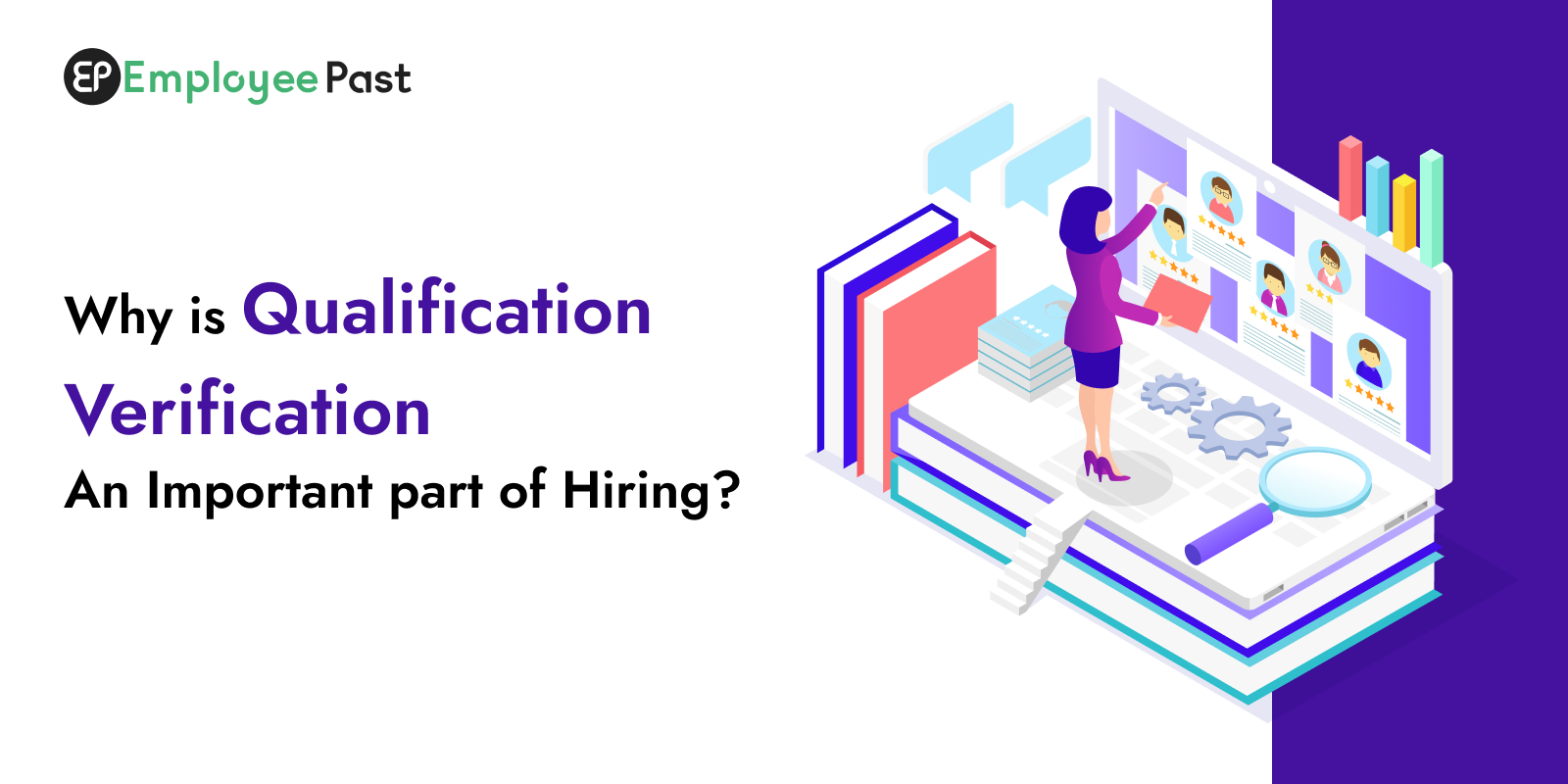- Dec 23, 2024
- Updates
- 1334
Share this post on:

Ensuring that the right individuals are hired is a cornerstone of successful organizational growth. Qualification verification, an integral step in the recruitment process, plays a pivotal role in achieving this goal. It ensures that candidates possess the skills and credentials required for their roles, mitigating risks and fostering workplace integrity.
The Importance of Qualification Verification in Hiring
Mitigating Hiring Risks
Qualification verification serves as a safeguard against fraudulent claims on resumes. By validating educational degrees, certifications, and professional achievements, companies can avoid hiring unqualified candidates. This minimizes the risks of inefficiency, poor performance, and potential reputational damage.
Enhancing Workplace Productivity
Employees who possess the qualifications they claim to have are more likely to excel in their roles. Verification ensures that the individual is equipped with the necessary expertise, contributing to higher productivity and better team dynamics.
Ensuring Legal Compliance
Many industries, such as healthcare, education, and finance, require strict adherence to legal and regulatory standards. Hiring an unqualified individual can lead to compliance violations, resulting in legal penalties and financial losses. Trusting a professional service like EmployeePast can ensure compliance and protect your organization.
Methods of Qualification Verification
Educational Background Checks
Verifying a candidate's academic achievements is crucial. This includes confirming degrees, certifications, and attendance at claimed institutions. Employers can contact educational institutions directly or use third-party verification services.
Professional Certification Validation
In roles requiring specific certifications, such as IT or engineering, verifying these credentials is non-negotiable. This step ensures that candidates meet industry standards and possess the expertise necessary for their role.
Reference Checks
Speaking with previous employers or professional references provides additional insights into a candidate’s qualifications and work ethic. These checks help confirm the accuracy of the candidate’s claims.
Document Authenticity Verification
Verifying the authenticity of documents submitted by candidates, such as diplomas or certificates, ensures that they are not forged or altered. Advanced tools and services can be employed to detect inconsistencies.
The Consequences of Skipping Qualification Verification
Financial Losses
Hiring unqualified individuals can lead to costly mistakes. Training, retraining, or replacing an unsuitable employee can drain resources.
Reputational Damage
An organization's credibility is at stake if an unqualified employee fails to perform or engages in misconduct. This can lead to loss of client trust and negative publicity.
Compromised Workplace Safety
In industries like construction or healthcare, unqualified personnel can pose significant safety risks. Verification ensures that only capable individuals handle critical tasks.
Best Practices for Effective Qualification Verification
Use Reliable Verification Services
Partnering with reputable third-party verification providers ensures accuracy and efficiency. These services specialize in conducting thorough background checks.
Maintain Consistency
Establish a standardized verification process for all candidates. This minimizes bias and ensures fairness in hiring practices.
Stay Updated with Compliance Regulations
Regularly review industry regulations to ensure that your verification process aligns with current standards. This protects the organization from legal risks.
Leverage Technology
Automated tools and AI-driven platforms can streamline the verification process, reducing manual errors and speeding up recruitment timelines.
Conclusion
Qualification verification is not just an optional step but a fundamental component of the hiring process. By implementing robust verification practices, organizations can ensure they hire competent, credible, and qualified individuals. This safeguards their reputation, enhances productivity, and fosters a safe, compliant, and efficient workplace. Consider utilizing platforms like EmployeePast to streamline and strengthen your hiring process.










